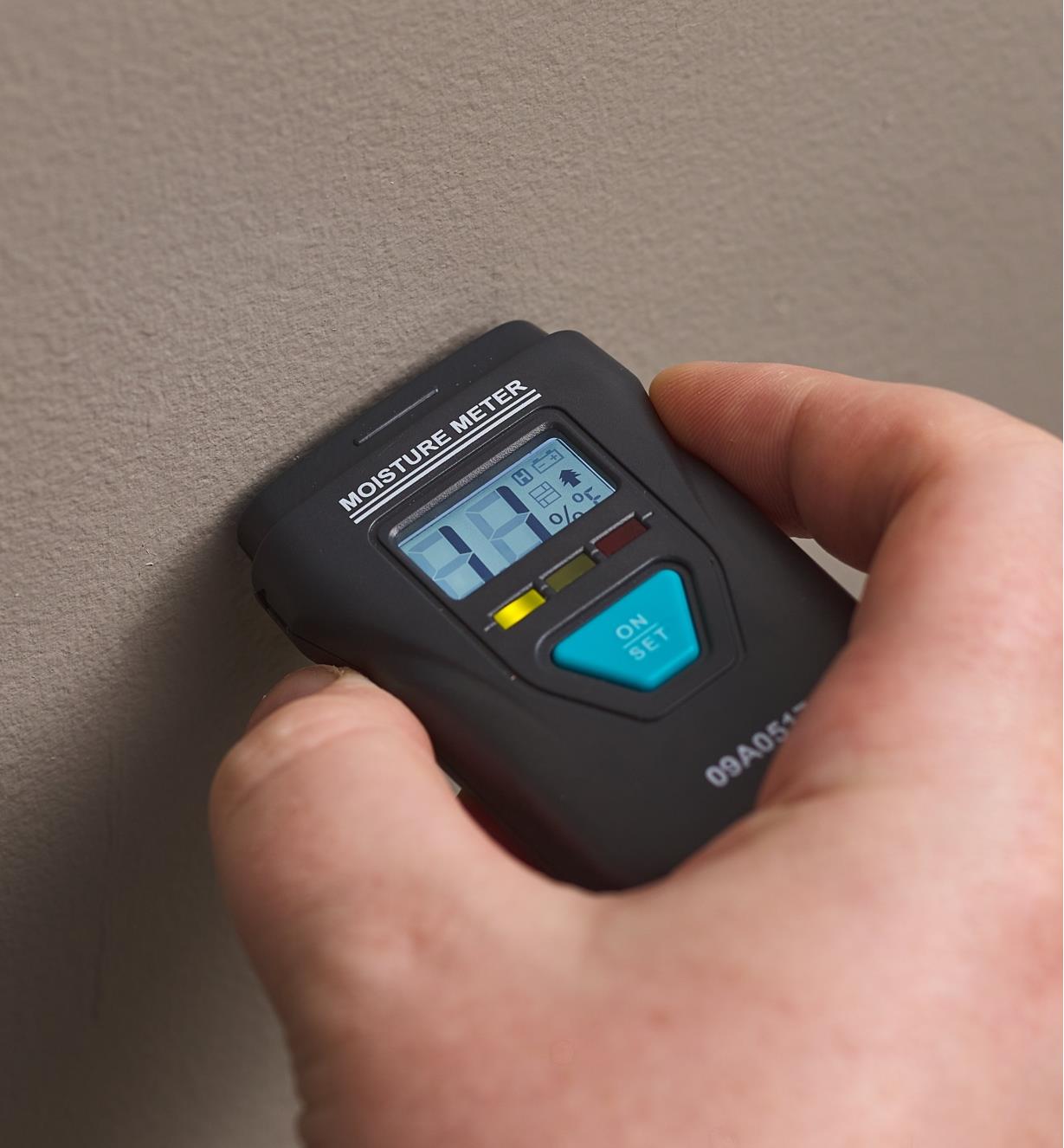Just How a Moisture Meter Can Assist You Preserve Ideal Conditions in Your Home or Office
Just How a Moisture Meter Can Assist You Preserve Ideal Conditions in Your Home or Office
Blog Article
The Ultimate Guide to Moisture Meters: A Comprehensive Summary and How They Can Save You Money
In the realm of structure maintenance, building and construction, and different industries, the significance of accurately gauging dampness levels can not be overstated. Moisture meters act as important tools in finding and monitoring moisture web content in materials, aiding in preventing pricey problems and ensuring the high quality of items. Understanding the nuances of different sorts of dampness meters, their applications, and the possible cost-saving benefits they provide can be a game-changer for businesses and professionals alike. Uncovering how these tools can not only simplify processes yet additionally contribute to monetary cost savings is a journey worth getting started on.
Types of Wetness Meters
One usual kind is the pin-type moisture meter, which measures the electrical resistance between 2 pins put into a material. Pinless dampness meters, on the various other hand, usage electro-magnetic sensing unit plates to check a larger area without triggering damage to the material's surface.

In addition, there are additionally specialty moisture meters made for details products like soil, hay, or grain. These meters supply exact dampness analyses customized to the special residential properties of the product being checked. Infrared wetness meters measure the thermal homes of a material to determine its moisture content non-invasively, making them helpful for applications where pin or pinless meters may not be suitable. Recognizing the different kinds of moisture meters readily available can assist sectors select one of the most suitable device for their particular dampness measurement demands.

Advantages of Using Dampness Meters
Wetness meters provide important benefits in precisely monitoring and analyzing moisture degrees in diverse products and environments (Moisture Meter). One of the key benefits of making use of moisture meters is the prevention of possible damages triggered by excess moisture. By finding and resolving high moisture levels at an early stage, wetness meters aid to avoid mold and mildew development, rot, and architectural damage in buildings, saving both money and time on repair services. In addition, dampness meters aid in making sure the high quality of products throughout building and construction or production procedures. By accurately determining wetness web content, these devices assist keep the honesty of timber, drywall, concrete, and various other products, minimizing the danger of failings or flaws.
Moreover, utilizing moisture meters can lead to raised power effectiveness. By identifying locations with high wetness levels, such as leaks or inadequate insulation, modifications can be made to improve power preservation and decrease energy expenses. In agricultural settings, dampness meters play a vital function in optimizing plant yields by making it possible for farmers to keep an eye on soil moisture degrees and make notified irrigation choices. Generally, the benefits of using dampness meters cover across numerous markets, offering cost-effective remedies and promoting better quality assurance methods.
How to Select the Right Dampness Meter
When selecting a wetness meter, it's vital to guarantee that the meter is suitable for the specific product you will certainly be screening. Different materials have varying electrical homes that can impact moisture analyses, so picking a meter created you could try this out for your material is essential for accurate outcomes. By meticulously reviewing these variables, you can pick a wetness meter that satisfies your needs and provides exact wetness measurements for your tasks.
Appropriate Methods for Moisture Meter Use

Price Savings Through Moisture Meter Applications
Just how can the critical use of wetness meters lead to significant price savings across numerous markets? In the farming market, moisture meters help in identifying the optimal time for collecting crops, protecting against excess or over-drying moisture that can influence the final item's high quality.
Similarly, in building and construction, wetness meters help protect against pricey damages by spotting dampness levels in structure materials, such as timber or concrete, which can result in architectural issues otherwise dealt with promptly. By identifying trouble areas early, professionals can take rehabilitative steps to stay clear of extensive repair services or replacements, eventually conserving time and money.
Additionally, in the food handling industry, moisture meters are crucial for keeping track of why not try this out item top quality and ensuring compliance with safety and security regulations. By precisely gauging dampness content in food products, makers can prevent putridity, keep freshness, and decrease waste, leading to substantial price savings. In general, the calculated application of dampness meters is an important financial investment that can lead to considerable price decreases and improved effectiveness throughout numerous sectors.
Conclusion
In final thought, moisture meters are valuable devices for measuring and detecting dampness levels in various products. By utilizing the appropriate wetness meter and following correct methods, users can properly stop costly problems triggered by excess moisture.
Wetness meters serve as indispensable devices in discovering and keeping track of moisture content in materials, assisting in stopping expensive damages and making certain the high quality of products. Infrared dampness meters gauge the thermal properties of a product to determine its dampness content non-invasively, making them useful for applications where pin or pinless meters might not be suitable.Dampness meters use important advantages in accurately examining and checking moisture levels in varied products and environments. In agricultural setups, dampness click here to read meters play an essential function in maximizing plant yields by allowing farmers to keep an eye on dirt moisture levels and make notified irrigation choices.In verdict, moisture meters are important tools for detecting and measuring dampness degrees in numerous products.
Report this page